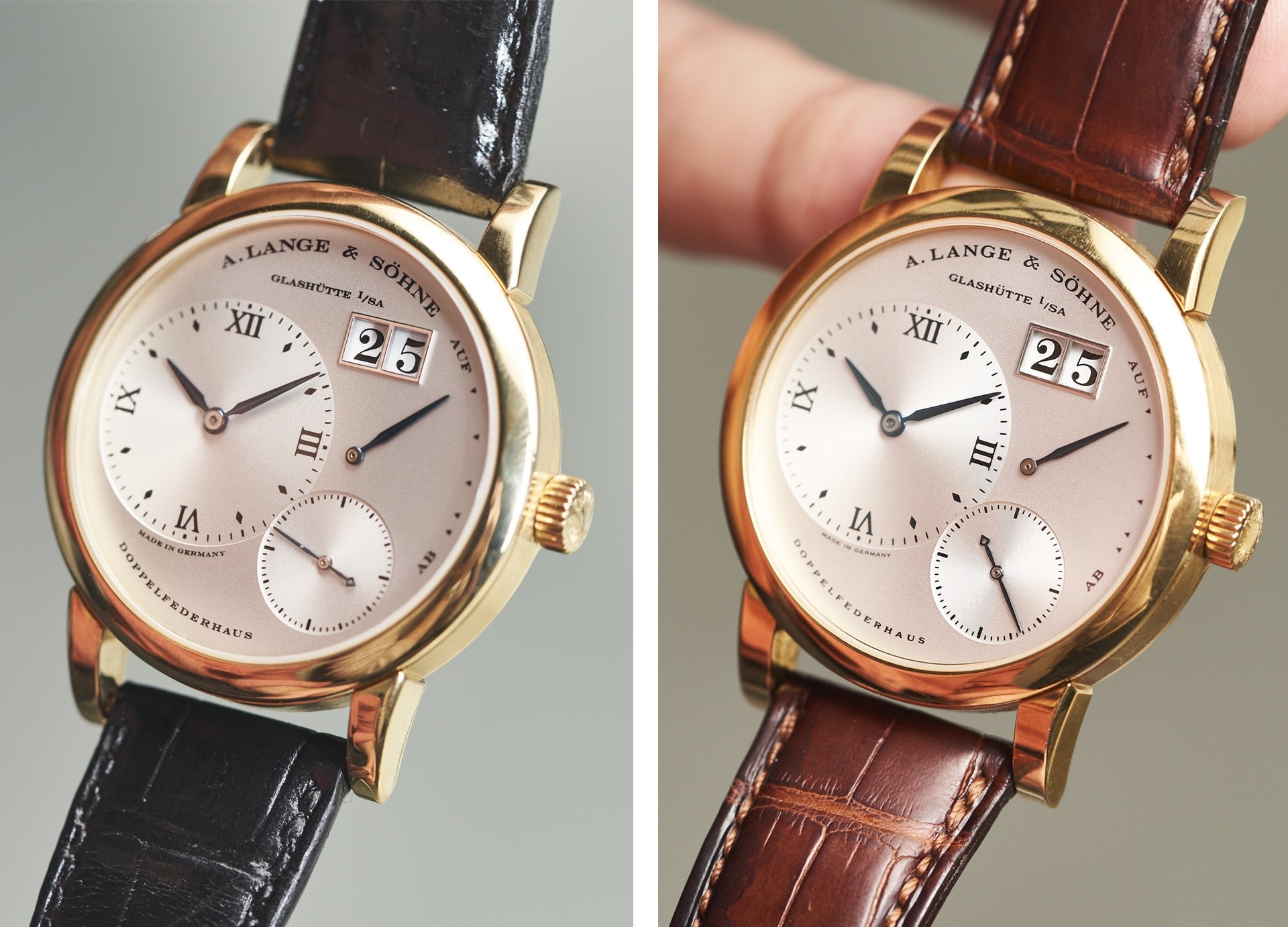An “Early MiG” Lange 1 Dial, courtesy of Subdial
Important scholarship illuminating the differences in early Lange 1 models
With the increase in popularity of A. Lange & Sohne over the past year or so — in particular early Lange pieces after the brand’s re-birth in 1994 — there has also been increased scholarship on the brand.
One of the most important Lange articles published over the past year is Subdial’s Lange 1 — Made in Germany.
Lange’s most iconic model is the Lange 1, the first of four families it introduced in October 1994 when the brand re-launched.
The collection developed throughout the 2000s, with variants featuring different dial colours and case materials being added to the lineup. As Lange matured as a brand, however, it seemingly pivoted away from the more adventurous or unusual references, choosing to stick with tried and tested classical designs. Accordingly, these early Lange 1 watches have become highly collectible. These references, including the very first closed caseback models but also more inventive and contemporary designs such as the 101.035 “Darth” or the blue dial 101.027, have seen a spectacular rise in popularity.
To date, little has been said about the differences between early “first generation” Lange 1 examples and those that were released much later on.
Drawing on an experienced watch collector and a database of Lange 1s meticulously recorded over the years, Subdial has put together this article of scholarship distinguishing between early Lange 1 dials, defined by their “early MiG” dials, and later Lange 1s, referred to as “later MiG.”
Two reference 101.022 watches, showing the different MIG texts (Later MiG at left, early MiG at right)
The discovery that opened this rabbit hole was the noticeable difference between the Made in Germany text on the dial, and lends its name to the general term with which Subdial uses to describe the package of dial differences. The first difference is that earlier Lange 1 dials use a smaller and sans-serif typeface for the “MADE IN GERMANY” text which sits just below the central portion of the dial. Later examples use a larger text and employ the serif Engravers MT font which Lange is known for. This is the main difference between “early MiG” (for “MADE IN GERMANY”) and later MiG dials.
Early MiG (left) compared to a later MiG dial
Subdial’s research into both case and annual production numbers indicates the transition from early MiG to later MiG took place sometime in the early 2000s. Because Lange’s annual production numbers were much lower in these early years when early MiG dials were being produced, they are substantially rarer.
Subdial has also found a handful of watches with case numbers which likely should have originally been presented with early MiG dials, but instead feature later MiG dials. It wouldn’t be a stretch to imagine that damaged or worn early MiG dials were replaced by later MiG dials of the same type during Lange servicing.
Subdial’s research also illuminates a number of other differences in these early MiG and later MiG Lange 1 dials, providing a valuable resource for collectors interested in understanding the Lange 1.
Currently, the market doesn’t differentiate between early MIG and later MIG dials, and it remains to be seen whether collectors will begin to do so. Ultimately, only time will tell whether these MIG differences attain the same level of scholarship represented in other collecting circles. Knowing watch collectors, however, it wouldn’t be surprising if early MIG dials join the ranks of early Journes, Dufours, and others with their differentiated details noted and appreciated by passionate fans.
For the full article, Lange 1 — Made in Germany, head to Subdial.co
Thanks to Perth for writing this article and bringing it to my attention.


